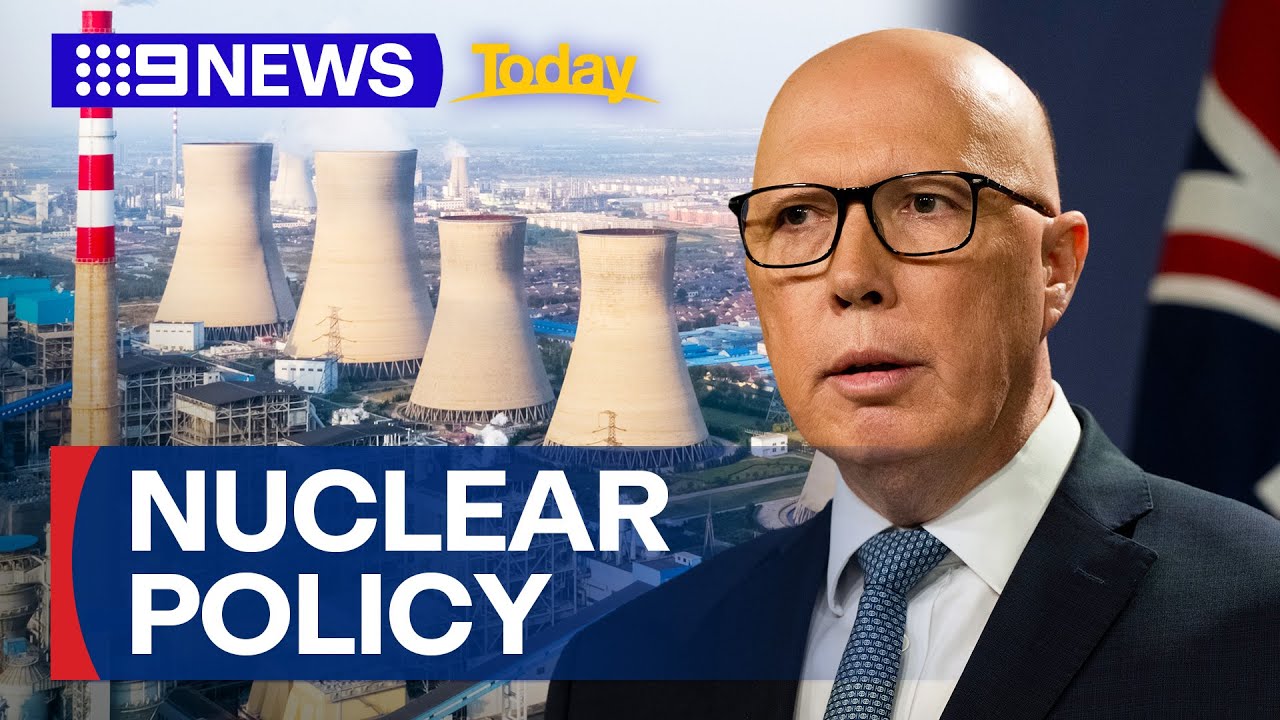The press conference is currently still live so this was the best short video I could find on the topic.
To begin, I’m absolutely against this proposal, but I want to see a discussion - hopefully a constructive one - between Aussies (comments are always turned off for Australian news on YT) to gauge some idea of how people generally feel about the idea.
Fire off.



I think Australia should be investing heavily in nuclear. The cost doesn’t make sense for the private sector to bear, but the govt can afford it as long as it doesn’t take away from renewable investment like the libs are proposing here. Future debt is easier to solve than carbon emissions.
We need large scale base load power generation to fill in the gap that electrification of everything will bring. Electrical demand will increase as we replace fossil fuel for heating, cars and transport, etc…
Link the east and west coast grids to let afternoon solar on the west coast flatten the evening east coast peaks, pick a big old chunk of desert in South Australia for wind and solar, throw in a few gigabatteries and tart up some hydro systems, done.
Probably only be $10-15 billion or so.
Thing is, Renewables are already cheap. By the time Nuclear is built, batteries and solar will be hugely cheaper than the price they are now (and in 10 years, its reasonable to expect more than half the price again).
The same thing that happened to NBN will happen to nuclear (basic Game theory). With NBN, competitors undercut the NBN with 5G, because FTTC and FTTN was so bad, and it wasted everyone’s money.
In this case, if they start building, everyone knows that power costs will be expensive, so renewable energy companies will target the prices, and encourage people to install solar and batteries anyway… If batteries are 1/5 of the price they are now, everyone will simply install 5x more batteries, more panels (because they’ll also be more efficient and cheaper than they are now, and work during worse conditions) and remove themselves from the grid. From a game theory point of view, Solar/batteries have a 10-15 year head start and are already cheaper. At the moment 12kwh seems to be the common capacity for batteries… However, if batteries drop a lot, 30-40kwh might be the normal. And it’s likely by the time Nuclear can be built that Lithium will no longer even be the norm for batteries (or if it is, they’ll probably be solid state and low risk). Sodium batteries were already introduced last year and are 25% cheaper instantly. Battery density doesn’t matter for houses (only cars), which really opens up options (all that matters is upfront cost and $ per kwh)
I bought my 6.6kw panels maybe 3 years ago, and 10kw is apparently already cheaper. If I wait 5 years, 15-20kw will probably be cheap (and I have more than enough roof space, so the only thing limiting me would be weather the power company allows it)
I have no idea why anyone would want a centralised grid. Last major power outage here in Victoria during storms was triggered because Loy Yang coal fell offline, and non-solid state power generation takes ages to come back online (it needs to sync up to the grid). Solar and batteries sync up immediately, so if its available, they will always beat Nuclear, and nuclear will simply be sitting there burning rods increasing our taxes and power prices (because nobody wants to use it, and its ultimately taxpayer money)… Similar to what happened with NBN (they ended up having to replace a lot of the copper anyway, and now yet again, they’ve had to upgrade to fibre)
If nuclear could come online tomorrow, it would make sense simply to get rid of coal. However Nuclear is basically playing a game where the competition has a 10 lead, and any innovation can be introduced to the market instantly. With Nuclear, whatever we start building now, we’re stuck with. You can’t simply just start incrementally updating parts